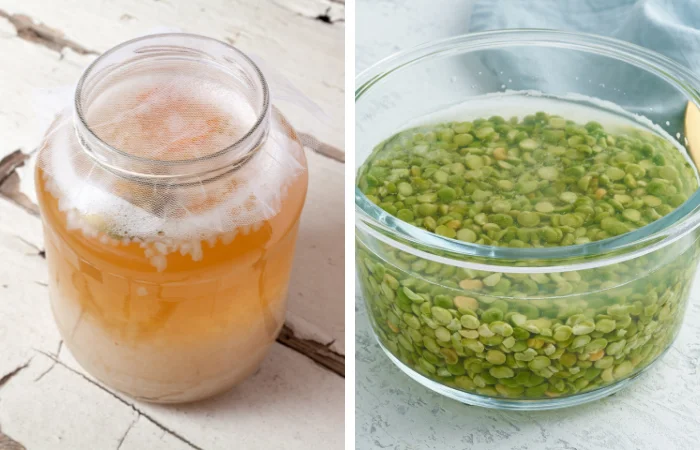Fermented foods have been a staple in many cultures for centuries. From kimchi in Korea to sauerkraut in Germany, these foods aren’t just tasty—they’re a treasure trove of health benefits!
But did you know that beyond the well-known fermented veggies, there’s a gold mine of wellness in fermented whole grains and beans?
Now, we highly recommend feeding fermented grains to your poultry and if it’s good enough for them, it’s certainly good enough for us!
The Magic of Fermentation
At its core, fermentation is a natural process where microorganisms like bacteria and yeast transform food. It might sound all science-y, but really, it’s nature’s way of adding an extra layer of flavor and nutrition.
4 Major Health Benefits of Eating Fermented Grains & Beans
- Gut Health Superstars: Fermented grains and beans introduce good bacteria, or probiotics, to your gut. These little warriors support digestion and can even help combat issues like bloating or indigestion.
- Nutrient Boost: Fermentation breaks down compounds in grains and beans, making it easier for our bodies to absorb essential nutrients like iron, zinc, and magnesium.
- Supports Immune System: A healthy gut often means a robust immune system. By promoting good gut bacteria, fermented foods might give your immunity that extra edge.
- Natural Preservative: The fermentation process acts as a natural preservative, allowing you to enjoy your grains and beans for longer without the use of artificial additives.
Did you know that almost 70% of our immune system is in our gut? This makes the probiotics from fermented foods even more crucial in supporting our body’s defenses!
How You Can Ferment Beans & Grains At Home - Easily
- Choose Your Grains & Beans: Keep it cheap and simple! Quinoa, oats, black beans, and chickpeas are great starters.
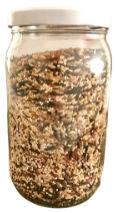
- Soaking: Place your grains or beans in a bowl or jar, covering them with water. Let them sit overnight.
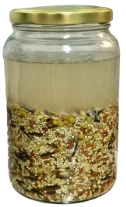
- Rinsing & Draining: The next day, rinse them well. This washes away compounds like phytic acid, which can inhibit nutrient absorption.
- Mix with a Fermenting Agent: For grains, a tablespoon of yogurt or kefir works wonders. For beans, consider using whey or a piece of sourdough bread. These agents introduce the necessary bacteria to kick-start the fermentation.
- Let It Ferment: Cover the mixture with a cloth and let it sit at room temperature. In about 48 hours, your fermented grains or beans will be ready!
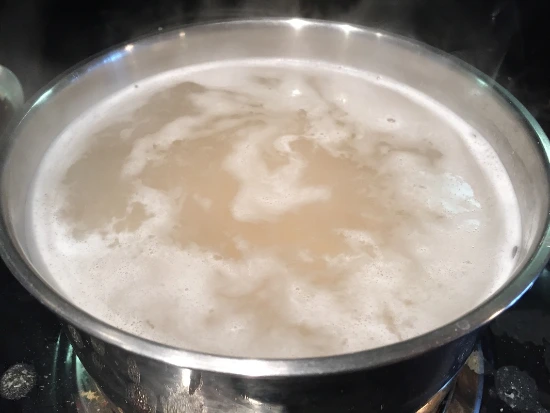
- Boil Them: Cook on medium to high heat, stirring occasionally. Once boiling, turn the heat to low, and keep stirring once in a while. Let the water boil nearly off and simmer for 20 more minutes, then turn the heat off, and let them cool.
- Storing: Store them in the refrigerator or freeze for up to six months.
Time To Serve Up Fermented Goodness
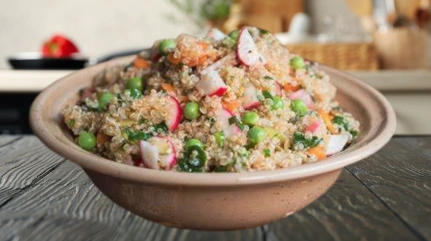
The beauty of fermented grains and beans? Versatility!
More To Discover
- This Ancient Drought-Resistant Grain Could Help the Midwest Survive Climate Change
- 12 Ancient Grains You Should Add To Your Diet For Better Health
- The Battle Against Invasive Carp: The Solution Is Simple, Eat The Invaders
- MIT Paves Way for Next-Gen Solar With Guide On Commercializing High-Energy Perovskite Cells
- Breakfast Bowl: Mix fermented oats with fruits, nuts, and a drizzle of honey.
- Hearty Soup: Fermented beans make a delicious, nutrient-rich addition to your soups.
- Salads: Fermented quinoa can add a tangy twist to your regular salads.
Wrapping Up the Fermented Journey
The world of fermented whole grains and beans is vast, flavorful, and brimming with health benefits. By incorporating these nutrient-packed foods into your diet, you’re not just treating your taste buds, but also investing in long-term health.
So the next time you’re meal planning, why not dive into the fermented realm and discover the myriad of benefits waiting for you?







